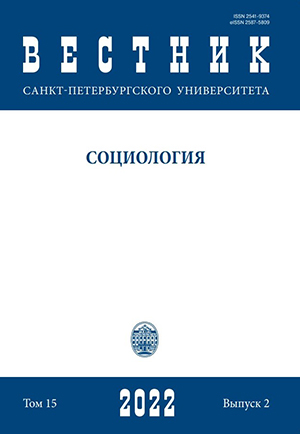The features of digitalization of regional socially oriented NPOs: Cases of Yekaterinburg
DOI:
https://doi.org/10.21638/spbu12.2022.203Abstract
The article presents the results of a study of the digitalization of activities of socially oriented non-profit organizations in Yekaterinburg. This city was chosen because of its status as theadministrative center of the Ural Federal District and the Sverdlovsk Region, which scores high in the development ratings of the non-profit sector of social services. Interviews with representatives of SO NPOs showed that organizations in Yekaterinburg are going through the stage of “digitalization” Most often they resort to using websites, social networks, instant messengers and online fundraising. Some NGOs are working on creating digital products in various forms for online consultation. The digital dividends received by SO NPOs in Yekaterinburg include: reduction of time costs due to the introduction of electronic document management, an increase in the inflow of financial resources due to the use of online fundraising tools, and a reduction in the risk of loss of reputation due to an increase in the level of publication openness of information resources of NPOs. Information portals are gaining popularity among NGOs, acting as intermediaries in attracting intellectual volunteers to social projects. Furthermore, a sector-wide need in a regional information aggregator for NPOs and in facilitating access of non-profit social service providers to databases of service recipients was identified. Among the barriers to digital maturation is the lack of financial and human resources, the lack of a developed strategy for digital transformation.
Keywords:
socially oriented NGOs, electronic workflows, digitalization, digital transformation, online fundraising
Downloads
References
Downloads
Published
How to Cite
Issue
Section
License
Articles of "Vestnik of Saint Petersburg University. Sociology" are open access distributed under the terms of the License Agreement with Saint Petersburg State University, which permits to the authors unrestricted distribution and self-archiving free of charge.




